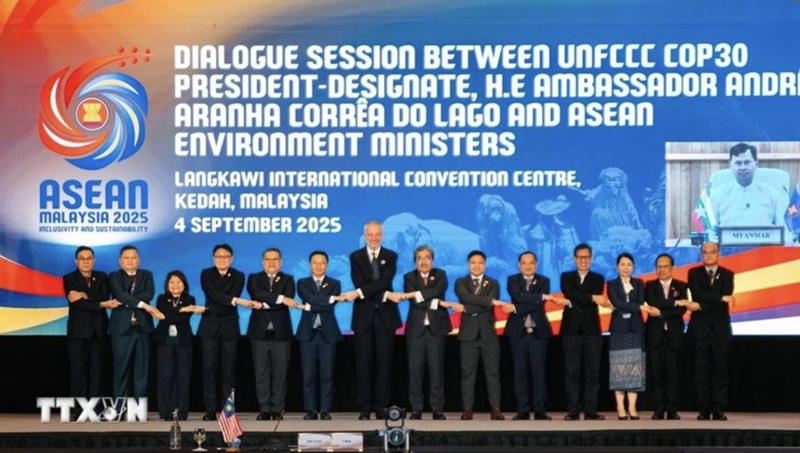September 06, 2025 | 23:41 (GMT+7)
ASEAN advances climate priorities ahead of COP30
Within the framework of the 18th ASEAN Ministerial Meeting on the Environment (AMME-18) held in Langkawi, Malaysia, ASEAN environment ministers on September 4 held a strategic dialogue with Ambassador André Aranha Corrêa do Lago, President-designate of the 30th United Nations Climate Change Conference (COP30), to strengthen common stances and advance Southeast Asia’s priorities in global climate negotiations.
ASEAN’s joint statement emphasized the urgency of climate action, especially as Southeast Asia is considered one of the most vulnerable regions in the world. Ahead of COP30, ASEAN has set out five key priorities and is calling for a significant increase in financial resources, noting that the current target of mobilizing 300 billion USD annually under the New Collective Quantified Goal (NCQG) still falls short of actual needs, which are estimated to reach 422 billion USD by 2030.
    |
 |
|
Delegates pose for a joint photo ahead of the dialogue. |
The ministers also stressed the need to promptly conclude negotiations on the Global Goal on Adaptation (GGA), while accelerating the Baku Adaptation Roadmap to strengthen community resilience.
In addition, they called for the full and rapid operation of the Fund for Responding to Loss and Damage to ensure timely support for vulnerable groups.
ASEAN also expressed the desire to accelerate the adoption of the bloc’s Common Carbon Framework to promote a just energy transition. The ministers urged enhanced access to climate technologies, accompanied by the necessary flexibility for developing countries.
Notably, host country Malaysia proposed the establishment of a Southeast Asia Alliance (SEA), a dedicated negotiating mechanism under the UN Framework Convention on Climate Change (UNFCCC). This group will complement ASEAN’s participation in the Group of 77 (G77) and China, while providing a platform for more effective strategic coordination across the region, ensuring ASEAN’s priorities and perspectives are placed at the center of the COP30 agenda.
The dialogue is expected to lay the foundation for sustainable regional cooperation, while enabling ASEAN to make practical contributions to the success of COP30, thereby strengthening resilience and advancing the region’s own sustainable development goals.
Source: VNA